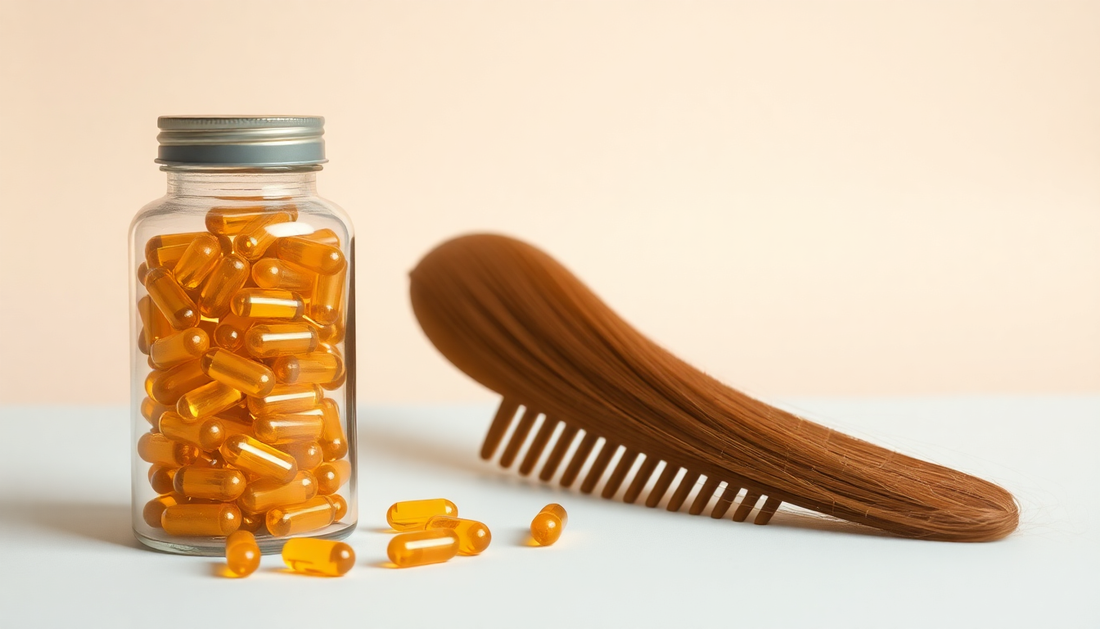
Biotin for Hair Loss After Bariatric Surgery: A Guide to Regrowth
Share
Biotin: Your Secret Weapon Against Hair Loss After Bariatric Surgery
Undergoing bariatric surgery is a transformative journey towards better health, but it can come with unexpected challenges, including hair loss. As your body adapts to significant weight changes and altered nutrient absorption, thinning or shedding hair is a common side effect. Thankfully, biotin—a powerful nutrient—can play a crucial role in supporting hair regrowth and overall health during this recovery phase.
Understanding Hair Loss After Bariatric Surgery
Why Does Hair Loss Happen?
Post-surgical hair loss, often caused by a condition called telogen effluvium, occurs when the body experiences significant stress. This stress pushes more hair follicles into the resting phase of the growth cycle, leading to shedding and thinning hair (PubMed).
Additionally, deficiencies in critical nutrients like protein, iron, and zinc—common after bariatric surgery—can exacerbate hair loss. These nutrients are essential for maintaining healthy hair follicles and promoting hair strength (NIH).
The Role of Biotin in Hair Health
What Is Biotin?
Biotin, also known as vitamin B7 or vitamin H, is a water-soluble vitamin crucial for the growth and maintenance of healthy hair, skin, and nails. It plays a key role in producing keratin, the primary structural protein of hair (Mayo Clinic).
How Does Biotin Help?
- Strengthens Hair: Biotin fortifies the hair shaft, minimizing breakage and split ends.
- Promotes Hair Growth: Stimulates hair follicle activity, encouraging new growth.
- Improves Scalp Health: A healthier scalp supports stronger, shinier hair and reduces hair loss.
Benefits of Biotin Supplementation Post-Bariatric Surgery
1. Stimulating Hair Regrowth
Biotin encourages the growth of new hair follicles, leading to thicker, fuller hair during the recovery period.
2. Enhancing Hair Strength
By improving the structural integrity of hair, biotin reduces common issues like breakage and dryness.
3. Supporting Overall Health
Beyond hair, biotin plays a vital role in converting food into energy, supporting overall metabolic health and aiding recovery (Harvard Health).
Incorporating Biotin into Your Recovery Plan
Recommended Dosage
A typical daily biotin supplement of 2,500-5,000 mcg is considered safe and effective for post-surgery hair regrowth. Always consult with your healthcare provider to determine the appropriate dosage for your specific needs (JAMA).
Choosing the Right Supplement
Select a high-quality, filler-free supplement for optimal absorption. Look for products that are free of unnecessary additives and formulated for enhanced bioavailability.
Additional Nutrients for Hair Health
Complement biotin supplementation with:
- Protein: Vital for hair structure and strength.
- Iron and Zinc: Support follicle health and prevent hair thinning.
- Vitamins C and E: Promote scalp health and boost antioxidant defenses.
Other Strategies to Support Hair Growth
1. Maintain Balanced Nutrition
Ensure a nutrient-dense diet rich in protein, whole grains, fruits, and vegetables. This supports hair follicle health and accelerates regrowth.
2. Practice Gentle Hair Care
- Use mild shampoos and conditioners.
- Avoid excessive heat styling and harsh treatments.
- Detangle gently with a wide-tooth comb to prevent breakage.
3. Stay Hydrated and Stress-Free
Hydration and stress management are critical for overall recovery and maintaining healthy hair.
Conclusion
Hair loss after bariatric surgery can be an unsettling experience, but with the help of biotin, you can support hair regrowth and restore its vitality. Incorporating biotin into your recovery plan—along with proper nutrition and gentle hair care—empowers you to navigate this transformative journey with confidence.
Always consult your healthcare provider to create a personalized plan tailored to your unique needs. With the right approach, you can achieve healthier, stronger hair and continue your path toward overall well-being.
Medical Disclaimer
This blog is for informational purposes only and does not constitute medical advice. Always consult a qualified healthcare professional before starting new supplements or making significant dietary or lifestyle changes.
